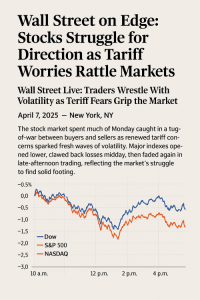Realty Income: Riding the Inflation Wave: A Safe Haven for Dividend Growth in Uncertain Times

Realty Income: Riding the Inflation Wave: A Safe Haven for Dividend Growth in Uncertain Times
Realty Income (NYSE:O), the “Monthly Dividend Company,” has long been a darling of income investors. Its net lease REIT structure, with long-term leases and inflation-indexed rents, provides investors with a steady stream of passive income. However, recent headwinds, including rising interest rates and a potential recession, have cast some doubt on the company’s future growth prospects.
Examining Headwinds:
- Rising interest rates: As the Federal Reserve hikes rates to combat inflation, the cost of borrowing for Realty Income increases, making it more expensive to acquire new properties and potentially impacting its dividend growth.
- Potential recession: A looming recession could lead to tenant defaults and rent declines, negatively impacting the company’s revenue and profitability.
- Competition: The net lease sector is becoming increasingly competitive, with new players entering the market and existing players vying for the same properties. This competition can drive prices higher and make it more difficult for Realty Income to acquire attractive properties.
Investing Thesis:
Despite these headwinds, there are still several reasons to be optimistic about Realty Income’s long-term prospects:
- Strong balance sheet: The company boasts a strong balance sheet with low debt and ample liquidity, providing it with the financial flexibility to navigate challenging economic environments.
- High-quality portfolio: Realty Income’s portfolio is comprised of high-quality properties leased to investment-grade tenants in service-oriented industries, which are generally less sensitive to economic downturns.
- Track record of dividend growth: Realty Income has a long and impressive track record of increasing its dividend, having hiked its payout for 98 consecutive quarters. This commitment to shareholder returns is likely to continue in the future.
- Inflation hedge: The company’s leases are typically indexed for inflation, which protects its rental income from the erosive effects of inflation. This is particularly advantageous in the current inflationary environment.
Path Forward:
To navigate the current headwinds and ensure long-term success, Realty Income needs to focus on the following key strategies:
- Disciplined acquisition strategy: The company should maintain its disciplined approach to acquisitions, focusing on high-quality properties with strong tenants and attractive lease terms.
- Active portfolio management: Realty Income should continue to actively manage its portfolio, proactively addressing potential tenant issues and proactively renewing leases.
- Strategic debt management: The company must carefully manage its debt levels and ensure it has access to affordable capital to fund future growth.
- Investor communication: Realty Income should continue to communicate effectively with investors, providing clear and transparent guidance on its future plans and strategies.
While Realty Income faces some headwinds in the near term, the company’s strong financial position, high-quality portfolio, and long-term track record of dividend growth provide investors with a compelling investment opportunity. By focusing on disciplined acquisitions, active portfolio management, strategic debt management, and effective investor communication, Realty Income can navigate the current challenges and continue to deliver long-term value for its shareholders.
Realty Income: A Solid Choice for Income Investors
Despite the current market uncertainty, Realty Income remains a solid choice for income investors seeking a steady stream of passive income. The company’s strong fundamentals, long-term growth prospects, and commitment to shareholder returns make it a valuable addition to any diversified portfolio.
Disclaimer: This article is for informational purposes only and does not constitute financial advice. Please consult with a financial advisor before making any investment decisions.






